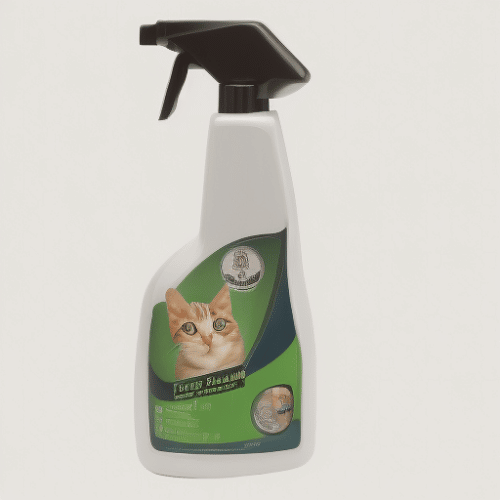Last Updated on
Are cat deterrents legal? It’s a question many of us have asked ourselves when dealing with pesky feline visitors to our gardens. But is it actually allowed in the UK? In this blog post, we’ll be discussing if cat deterrents are indeed legal and what types you can use safely. We will also look at the pros and cons of using such products as well as some alternative solutions that may work just as effectively – without breaking any laws. So whether you’re looking for ways to keep cats away from your garden or simply want to know more about these popular devices, stay tuned for an insightful discussion. Read on!
Table of Contents:
- Are Cat Deterrents Legal in the UK?
- Types of Cat Deterrents
- Pros and Cons of Using Cat Deterrents
- Alternatives to Cat Deterrents
- FAQs in Relation to Are Cat Deterrents Legal
- Conclusion
Are Cat Deterrents Legal in the UK?
The use of cat deterrents in the UK is a contentious issue, with many people unsure of their legality. In this article, we’ll explore the legal implications of using these products to help keep cats away from your garden or property.
Cat Deterrents:
Cat deterrents are devices designed to discourage cats from entering an area by emitting sounds or smell that cats find unpleasant. These can range from ultrasonic sound emitters and motion-activated sprinklers to natural repellents such as citrus peels and coffee grounds.
Legality of Cat Deterrents in The UK
In the UK, it is illegal to cause unnecessary suffering or harm to any animal – including cats – under Section 4(1) of the Animal Welfare Act 2006. This means that if you use a cat deterrent device which causes pain or distress, then you could be prosecuted for animal cruelty offences.
Therefore, it is important to ensure that any cat deterrent used does not cause physical harm in any way; otherwise, it would be considered an offence under this law. Additionally, some types of cat deterrents may also contravene other laws relating to noise pollution (such as those set out in The Control Of Pollution Act 1974). Therefore it’s important to research local regulations before purchasing and using one on your property.
Cat deterrents are an effective way to keep cats away from your garden or property, however, it is important to be aware of the legalities involved in using them. In this article, we’ll look at different types of cat deterrents and how they can be used safely and legally.
Types of Cat Deterrents
Cats can be a nuisance to any garden, but luckily there are many different types of cat deterrents available on the market. From ultrasonic devices to motion-activated sprinklers and scent repellents, you’re sure to find something that works for your needs.
Ultrasonic Devices:
These devices emit an ultrasonic sound which cats don’t like and will stay away from. The sound is inaudible to humans so it won’t disturb you or your neighbours. Some models even have adjustable frequencies so you can customize them according to the type of cat that’s causing trouble in your garden.
Motion-Activated Sprinklers:
Motion-activated sprinklers detect movement and spray water when they sense it, startling cats away from your property without harming them. This is a great option if you want something humane yet effective at keeping cats out of your yard or garden area.
Scent Repellents:

Scent repellents come in various forms such as sprays, granules, and plug-in diffusers that release an unpleasant smell for cats but not humans. Common scents used include citronella oil, lavender oil, peppermint oil, garlic extract and more – all designed to make the area less appealing for felines while still being pleasant enough for people nearby.
If none of these options work for you, then there are other ways to deter cats from entering certain areas. For example, you could use chicken wire fencing around flower beds or place spikes on walls and fences where they tend to climb onto roofs. Additionally, planting plants with strong odours like rosemary or lavender near windowsills and doorways may help keep unwanted visitors away.
Pros and Cons of Using Cat Deterrents
Cat deterrents are a popular way to keep cats away from your garden or property. While they can be effective, there are some pros and cons that you should consider before using them.
Pros:
• Cat deterrents provide an easy and cost-effective solution for keeping cats away from your property. They can be used both indoors and outdoors, so they’re suitable for all types of gardens or properties.
• Many cat deterrents use natural ingredients such as essential oils, which have been proven to repel cats without causing any harm to the animals themselves. This makes them much more humane than other methods of cat control such as traps or poisons.
• Some cat deterrents also contain pheromones which mimic those released by predators in order to scare off cats from entering certain areas. This is a great way to protect vulnerable plants or flowers in your garden without harming the animal itself.
Cons:
• Cat deterrents may not always work on every type of cat, depending on their personality and behaviour patterns – some may be less scared than others. It’s important to test out different products before settling on one that works best for you and your pet situation.
• Some cat deterrents contain strong scents which could potentially cause irritation if inhaled by humans or pets living nearby – it’s important to read the instructions carefully before using these products around people who might be sensitive to smells like this. • If used incorrectly, some cat repellents could actually attract more cats into the area instead of deterring them – again, make sure you follow directions closely when applying these products so as not to create an even bigger problem.
Overall, it is important to consider the pros and cons of using cat deterrents before making a decision. However, there are also other options available for deterring cats from your garden that may be more effective or easier to implement.
Alternatives to Cat Deterrents
When it comes to keeping cats away from your garden or property, deterrents are not the only option. There are several alternatives that can be used to keep cats out of your yard without having to resort to using deterrents.
One alternative is planting certain plants in your garden that cats find unpleasant. Plants such as lavender, rue, and pennyroyal have a strong scent that cats don’t like and will stay away from them. You can also plant rosemary around the perimeter of your garden as this has been known to repel cats too.

Another way you can deter cats from entering your property is by building a fence around it. This will create an effective barrier between you and any potential intruders, including felines. Fences come in many different styles so you should be able to find one that suits both the aesthetic of your home and budget. If possible, opt for one with spikes on top as this will make it even more difficult for any animals (or humans.) trying to get over it.
You could also try installing motion-activated sprinklers or lights in areas where you’ve seen cats visiting before; these devices detect movement and then either spray water or turn on bright lights which can startle animals away quickly enough for them not to return anytime soon. These devices are relatively inexpensive but they do require some maintenance every now and again – just make sure they’re always working properly if you decide this route is best for you.
Finally, there’s always the old-fashioned method: simply shooing them away when they come into view. It may take time but eventually most animals learn their boundaries if given consistent reminders about where those boundaries lie – plus it’s much less expensive than buying all sorts of cat repellents or gadgets designed specifically for this purpose.
FAQs in Relation to Are Cat Deterrents Legal
Can humans hear cat deterrents?
Yes, humans can hear cat deterrents. The sound emitted by these products is typically within the range of human hearing, although it may be at a higher frequency than most people are used to. Cat deterrents work by emitting an unpleasant noise that cats find uncomfortable and will avoid. This sound is usually loud enough for humans to hear as well, making them an effective way to keep cats away from areas they should not enter.
What can I use to keep stray cats off my property?
There are a few options to keep cats away from your property. One is to install motion-activated sprinklers, which will startle cats when they enter the area and discourage them from returning. You can also try setting up barriers like chicken wire or netting around the perimeter of your yard, as well as covering any potential entry points with mesh or plastic sheeting. Finally, you could use scent deterrents such as citrus peels or commercial cat repellents to make the area less appealing for cats. With some patience and experimentation, you should be able to find an effective solution that works for you.
Conclusion
So, are cat deterrents legal? Cat deterrents can be a useful tool for keeping cats away from your garden, but it is important to remember that they are not always legal. It is best to research the laws in your area before using any cat deterrents and consider alternatives such as motion-activated sprinklers or natural repellents. Ultimately, understanding the legality of cat deterrents will help you make an informed decision about how to protect your garden without breaking the law.
Paul is the type of person who never met a problem he couldn’t fix. He can always be found tinkering with something in his house, even if it isn’t broken! His tips and tricks are often shared on our site. He’s the one you call when something breaks because he has been known to improvise fixes for everything from leaky faucets to malfunctioning dryers.



